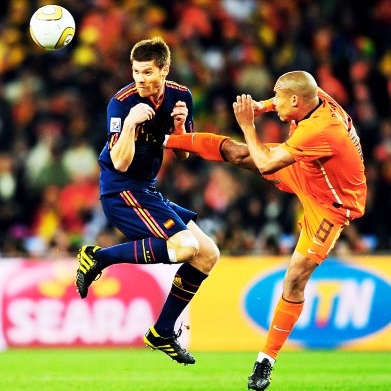
Voices

Global Cup keeps us glued to the box
JULIE LEIBOWITZ
It is that time again for this real-life, old-fashioned, couch-potato event, with 64 matches, eight groups, 32 teams, 31 days, and 12 venues, some of which are an education in language and geography in themselves – can you pronounce Nizhny Novgorod?
Aside from the team you drew in the office competition, there are other reasons to panic. Watching the FIFA World Cup 2018 requires a trip to Russia, and if that can’t be arranged, you need a DSTV connection, a very good friend, or a local sports bar with a big-screen TV.
Our family ditched our DSTV contract in favour of cheaper streaming options. But, with a son who lives and breathes soccer, we had to get a DSTV connection fast – or send him off to boarding school.
So, weeks before the competition started, we contacted Multichoice to find out about secondary streaming options. Then, to make sure that we could watch wherever we were, we experimented on our iPads, cellphones and computers to find which streamed the signal the best, and how we could watch as a family. It felt like organisation on a global scale – which, I suppose is appropriate for a global event.
We were not alone in trying to figure out how to get connected for the few weeks that the Cup was in play. One Jewish family revealed that they had kept their DSTV Premium subscription precisely because of the World Cup.
Though our family is soccer mad, it seems our fervour isn’t shared by everyone. “Fortnite trumps the World Cup. It’s the much older boys who are interested not the new generation, in my opinion,” one of the moms I contacted told me.
Another suggested that I should write about how to be a “sports widow”, or “how the World Cup saved my marriage”. She was alluding, of course, to the fact that for many people – particularly women – the event is a big yawn or a constant battle over the TV remote.
“One of my congregants had a wedding anniversary on the same day as the opening match,” a local rabbi told me. “He wasn’t sure what to do. I told him to take his wife to a restaurant with a big screen and sit facing the screen. That way, he could do both – celebrate the anniversary, and watch the match.” (Soccer widow, anyone?)
Of course, for observant Jewish families who love soccer there is the issue of what to do about those matches being played on Shabbat. They can’t be watched live, and must be recorded and watched later.
“Maybe the time difference [between Russia and SA] could work in our favour for those afternoon matches,” one individual quipped. This could be the case with a match played in Yekaterinburg – which is a two and a half hour flight east of Moscow (Russia has nine time zones). However, seeing as Moscow is officially only one hour behind South Africa on global time zones, it’s not likely.
Though neither Israel nor South Africa made the cut, it hasn’t dampened our enthusiasm for the most beautiful game with the most melodramatic fouls.
And, in spite of some of the ugly politics, like the cancellation of the Argentine warmup in Jerusalem two weeks ago, or the inevitable controversies about the costs of building FIFA-sized stadiums, the World Cup is a truly global moment.
Sitting on our couches in our living rooms, we can pretend that we live in a global village – with some strange accents – where “prefects” in black keep order at the flip of a card. It gives us something to talk about that isn’t world peace or global poverty. We’ll get back to that after the match.




